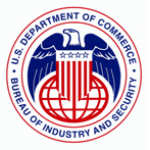 The Office of Foreign Assets Control (“OFAC”) released today its monthly report on civil penalties, and it was indeed a short list with one short entry. And since there’s only one entry it, not surprisingly, involved the “terrorist” island just to our south.
The Office of Foreign Assets Control (“OFAC”) released today its monthly report on civil penalties, and it was indeed a short list with one short entry. And since there’s only one entry it, not surprisingly, involved the “terrorist” island just to our south.
According to the report, French cheese giant Lactalis’s New York subsidiary agreed to pay $20,950.38 to settle allegations that, between February 2004 and March 2007, the subsidiary made six unlicensed wire transfer payments in which Cuba or Cuban nationals had an interest. Lactalis is responsible for Président products, including the heavily marketed Camembert it produces under that brand name, as well as Sorrento, Rondelé, Société Roquefort and other famous cheese brands. Lactalis did not voluntarily disclose the matter to OFAC.
Of course, OFAC, consistent with its less-is-more approach to penalty transparency, doesn’t provide any further information on the situation leading to the agreed fine, but a coincidence relating to the dates of the wire transfers can allow some speculation that a blog, as opposed to a real newspaper, can get away with. A report in the Cuban press in February 2004 — the date of the first wire transfer — indicated that Lactalis made a presentation to the Cubans in the Melia Hotel in Havana indicating the company’s intention to amplify its presence on the Cuban market.
Lactalis’s subsidiary in New York is its only subsidiary in the Americas, and so my guess is that it made wire transfers in connection with the presentation in Havana, probably a transfer to reimburse the French-based employees that made the presentation. The remaining wire transfers may also have been to reimburse non-U.S. employees for expenses that they were incurring in Cuba while marketing Lactalis’s products. Chances are the wires referenced Cuba (even though they were not destined to Cuba) which is how they got picked up by the banks involved and reported to OFAC.
This is, of course, just my guess. Any other ideas welcomed in the comments.

 Posted by
Posted by  Category:
Category: 

 On Tuesday, the Office of Foreign Assets Control (“OFAC”)
On Tuesday, the Office of Foreign Assets Control (“OFAC”)  While looking for background on the recent
While looking for background on the recent  Not too long ago when I
Not too long ago when I  The Directorate of Defense Trade Controls issued a Federal Register
The Directorate of Defense Trade Controls issued a Federal Register 

